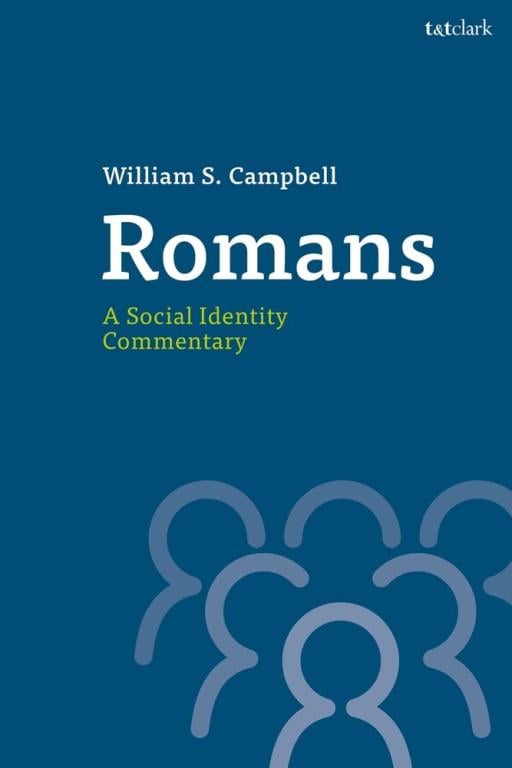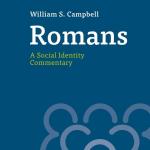Q. Let’s talk about pistis, a word which certainly can be translated ‘trust’ but it can also be translated faith and even faithfulness, for instance in the phrase in Romans which refers to the pistis Theou, the faithfulness of God. Why do you not recognize the spectrum of possible ways Paul could have used this important word, and simply render it trust throughout the commentary?
A. First of all it is better to keep to the one meaning consistently throughout if the grammar allows. Secondly, faith in the UK often means faith in the sense of another faith or world religion. One reason for using trust to translate pistis is that trust in my opinion best expresses the close link with Christ in a personal relation that I prefer to emphasize-it is above all a relation of trust rather than merely commitment to a body of doctrines.
Q. Let’s talk about pronouns for a minute, in particular Paul’s use of ‘we’ and his use of the term ekklesia. Take for example Paul’s use of the phrase ‘in Christ’ in Rom. 12.5— clearly enough, it includes Paul himself, a Jew, since he says ‘we’ and it also includes his audience, predominantly Gentiles, but also some Jews. The division of apostolic labor between Paul and Peter did not exclude Paul from addressing some Jews in or outside the synagogue though his focus was on converting Gentiles, nor did it prevent Peter from evangelizing some Gentiles. The goal was that there be one body of Christ involving both Jews and Gentiles, even if currently with an extensive but selected bibliography of standard and most recent literature, Gentiles and Jewish Christians were mostly meeting separately in Rome. Rom. 3.24 is clear enough that salvation/ redemption happens for all persons ‘in Christ Jesus’ and not elsewhere. What Paul is careful about is not intruding in someone else’s territory of evangelism. He is not worried about evangelizing Jews as some form of poaching or inappropriate contact on his part. And the evidence in Paul’s letters and also Acts suggests that in Corinth and Ephesus he didn’t just plant a church and then leave. He stayed for a considerable period of time, more than a year in Corinth and more than two years in Ephesus to make sure the ekklesia was well established. Notice as well that Paul does not use the term ‘ekklesia’ exclusively of churches of Gentiles he had himself founded. Notice his admission in Gal. 1 that he persecuted ‘the church of God’ in Judaea for example before his conversion. Now the ‘we’ in Rom. 12.5 is important because he is mainly addressing Gentiles which he did not convert, and yet he sees himself and them as part of a community of belief. How would you critique all this?
A. I agree with you that as in Rom.12.5, Paul can include himself in the ‘we’ that includes his gentile converts. But it would not be right to assume from this that Paul here calls himself a non-Jew-this would be to challenge Paul’s strong assertions of his Jewish identity as an Israelite (Rom.9.1-5). In such places as 12.5 Paul is simply expressing solidarity with the Christ-community as their father in Christ. He is one with them “in Christ”, but when it comes to references to a sinful past, Paul separates himself refusing to say in 6.14, “we are not under the Law but under grace” (Romans ,186). Instead he says “you are not under the Law but under grace”. It is to the credit of Thiessen and Rodriguez, in the edited collection of essays on the So-Called Jew (2016), that attention is drawn frequently to Paul’s careful use of pronouns to join himself with, or dissociate himself from, his gentile converts.
I also agree that the division of labour between Peter and Paul did not prevent Paul speaking or associating with Jews, even though his evangelistic arena was the nations. This probably meant that Paul his did main work in the Diaspora, and that he visited the synagogues for other reasons than simply evangelizing, even though as a strategy for reaching the non-Jews most likely to respond positively to his message, this would be excellent.
I also agree that Paul’s desire was that there should be one body of Christ of both Jews and non-Jews. Now it is obvious that not all such could always or everywhere meet together in one place, and certainly not in Rome due to the distance separating the various groups. It is worth taking note of the geographical location of the Jewish catacombs of later centuries at the outskirts of Rome. These indicate most likely the presence of Jewish groups nearby as it would have been nearly impossible to transport bodies for funerals across the vast distances in the heat of the city. No matter how united they were it would be most unlikely that they always meet together in one location. Even today all the churches acknowledge that we are one body in Christ, but this obviously does not mean that we meet together in one place. Even to assume that there were only two groups in Rome is to oversimplify the diversity in the city of Paul’s time.
On Rom 3.21-24 one could paraphrase something like this ‘but now apart from the Law righteousness of God has been disclosed’ could be interpreted to mean previously God’s righteousness through the Law had been revealed for the people Israel, that is, the Jews. What Paul is asserting is not that righteousness has appeared for the first time with Christ, but rather that righteousness apart from the Law has been revealed for the first time in Christ. Due to the dawning of the messianic time God’s righteousness has been revealed outside the realm of the Law, ie for gentiles. In my view the ‘all’ here means all gentiles, (though this does not mean that Jews are not under sin), and these gentiles are now justified by his grace. Note that Paul does not say ‘we’, hence he does not include himself here as under sin as if he were a gentile.













